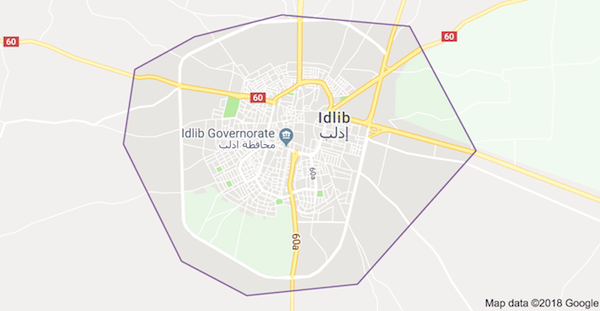The way China, an increasingly powerful nation in the midst of a great power competition with the United States, interacts with the rest of the world will have significant global implications. Syria could be a key test case of China’s willingness to intervene on a global scale in a more direct way in pursuit of its interests.
Both China’s ambassador to Syria as well as its military attaché in the country have raised the possibility of Chinese military operations in Syria alongside the Syrian government. Chinese Ambassador Qi Qianjin reportedly stated that the Chinese “military is willing to participate in some way alongside the Syrian army that is fighting the terrorists in Idlib and in any other part of Syria,” while military attaché Wong Roy Chang reportedly said the Chinese military could participate in an operation to retake rebel-held Idlib if Beijing made the political decision for it to do so.
It is important to stress that neither statement is a confirmation that China is about to send military forces to participate in combat operations in Syria. However, the comments, if true, would mark the closest confirmation we have had of such a possibility.
Active Chinese military involvement in Syria would mark a substantial step forward in overall Chinese involvement in the Middle East and in a global sense as well. Except for operations under the United Nations peacekeeper mandate, China has largely avoided military operations beyond its borders or its immediate region. A military operation in Syria could open the door for further such Chinese involvements around the globe.
China has also long been concerned about Uighur militants in the Turkistan Islamic Party (TIP) operating in Idlib. Given the extensive combat experience of TIP’s Syrian branch and its significant capabilities, Beijing has an interest in seeing Uighur militants destroyed before some of them return to Central Asia or even China. Primarily for that reason, it makes sense for China to consider a more active involvement in a battle to retake Idlib.
However, even if China does participate in the campaign to retake Idlib, which is far from certain, it’s involvement would remain fairly low key. China’s focus in Idlib would be to see key TIP leaders and fighters killed. To that end, the most likely Chinese deployment would primarily involve military advisers, intelligence personnel and perhaps some special operations forces for specific direct-action missions. In terms of the latter, this would likely involve small-scale deployments of specialized Chinese People’s Armed Police Force units such as the Snow Leopard Commando Unit, which has considerable counterterrorism experience. Still, even such a low-level commitment by China would mark a remarkable departure in the overall Chinese strategy and would signal a new approach by Beijing to its involvement in the Middle East and further afield.
If China decides to wade into the Idlib morass, it would have to factor in the large number of involved parties, including Russia, Turkey and Iran. Idlib technically falls under a “de-escalation status” arrangement agreed to by the listed countries in the Astana peace process. Nevertheless, significant differences remain between Russia, Turkey and Iran. Ankara, which has provided support for TIP in the past, is striving to maintain the de-escalation zone and prevent a loyalist offensive that could result in yet another massive spillover of refugees into Turkey. Moscow is also keen to maintain its de-escalation zone agreement with Turkey but is getting impatient with the continued existence of dangerous factions in Idlib such as TIP and Tahrir al Sham (known as HTS) that continue to attack Russian and loyalist targets. Finally, Tehran and Damascus would prefer to see the de-escalation zone agreement scrapped and a full offensive on Idlib launched, but they are wary of proceeding without active Russian support given the considerable Turkish presence in the province.
All of these considerations ensure that China will have to carefully approach any military involvement in Syria, particularly with regard to Idlib. Careful coordination with Russia, the Syrian government and Turkey would be necessary for Beijing to avoid severe complications in Syria, particularly given its substantially smaller footprint in Syria compared with the other countries.
